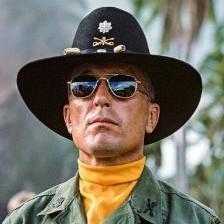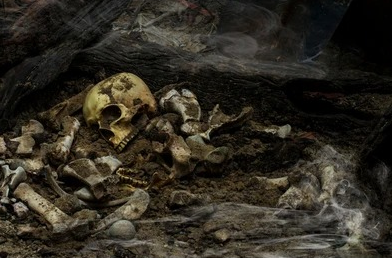I would tend to agree. There may be a time and place for mass mobilization and a draft, and in all likelihood, a Pearl Harbor-like event would be the pretext for it. Then, it wouldn't need to be so mandatory, and certainly not in a state of relative peace.
I understand the desire to reshape or reinvigorate civil society and many social ills, but I don't think the military is the right institution for it for two reasons. One, the military is a cross-section of society (for the most part)...you get every type and kind, good, bad, or indifferent. So the notion of bolstering civic pride and responsibility is somewhat moot because that's really not our job as it is. We make recruits capable of doing certain tasks and working as a team, but we have our fair share of $hitheads. The good ones are usually already decent folks before they join. Furthermore, if we are generalizing, there has been a marked decline in culture and social development over the past generation or two...kids are fatter, less engaged, and have a host of mental illnesses (anxiety, depression, need their mom to go to the job interview with them, etc). I don't think the military is capable of fixing this, and I certainly don't have the time (nor do the NCOs) to babysit and play stepdad to a mass of new trainees who need safe spaces and inhalers for every minor inconvenience. We already have more things to do with fewer people and resources, so giving the military such a grandiose "fix the kids" task isn't going to help. What is that weekly staff meeting slide going to look like...? No thanks.
My second point is that our civil society is (or should be) shaped by the many small, local institutions that foster character formation, civic pride, and responsible adults. This isn't something we should look to the military to do. As a caveat, yes, veterans and military members can influence civil society, especially once they are out of uniform. That can be as parents, little league coaches, teachers, clergy, scouts, the Lions Club, etc. But we shouldn't look to the military to be the guiding force in our culture; if anything it is there to defend it, not influence it. I'm harping on this because one of my recent interests is reading about culture and civil society. There was a book written in 2001 (pre-internet and 9/11) called "Bowling Alone" by Harvard professor Robert Putnam. His main thesis is that civic participation declined markedly from about the 1960s to the turn of the 21st century. Notably, this was before social media, internet culture, and all the recent generational and technological changes we've experienced and it's only gotten worse (psychologist Jonathon Haidt is another good resource here). As a member of recreational bowling leagues, he observed that while the number of people bowling actually increased from ~1960 to 2000, the number of organized leagues declined. He used that anecdote to highlight a broader decline in civic participation from things like religious institutions, social clubs (Lions, Elks, etc), and character-forming organizations (e.g. scouts) as they were the means by which people interacted, developed social bonds, and solved problems. Since he's left of center, he chalks much of it up to wealth inequality, deindustrialization, etc but his point is salient. Interestingly, he also found that immigration and multiculturalism had a negative influence on social capital as there is less trust and cooperation both between groups and within groups. He also doesn't talk so much about the role of the welfare state, sexual/gender revolution, and various counter-cultural movements of the 60s and 70s that started the slow deconstruction of civic traditions and associations.
Long story short, sociocultural issues can't be solved primarily by the military, indeed not by the government. If anything, central planning and social engineering from bureaucrats will only make things worse. We should use and respect the military for its intended purpose, not as a tool to correct social ills; doing so is likely to yield poor results in both the armed forces and civil society. We should instead heal our civic decline by emphasizing the importance of character-forming institutions, which, if the time comes, will benefit the military because it will have more ready, able, and willing recruits.
Ask yourself, if we made the Air Force responsible for teaching young Americans math, science, and good character...is this something AETC will f*ck up?












